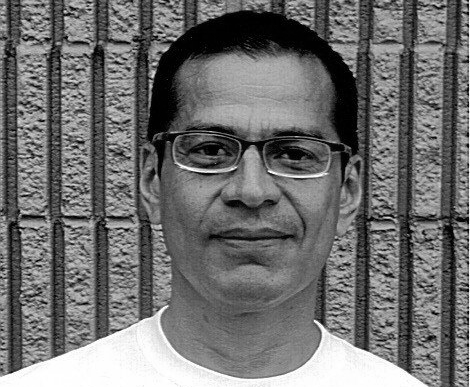A Letter From Edwin Rubis Still in Jail for Cannabis on His 56th Birthday
MY 56th BIRTHDAY IN PRISON
Over a week ago I left FCI-Talladega with the hope I was going to a lower security prison. What they did not tell me was that I was going to spend weeks and weeks going from jail to jail and prison to prison to actually reach my destination. And while I had planned to celebrate my 56th birthday with at least a decent meal and perhaps a diet soda, things have turned out way way different.
Today marks the 8th day at Atlanta transfer center. A third-world country type of jail. I am locked in a 10 by 12 jail cell infested with roaches which find it fun to come out at night and crawl all over me while I sleep on an inch-foam-mat covered by half a sheet and a holed blanket, eating cold meals of pasta and mystery meat, and using a stainless steel sink/commode combination where only the hot water works and I have to flush the toilet every time the inmate next door flushes so it won't overflow my cell with doodo and urine.
How do I feel emotionally? How do I feel about spending my 56th birthday in prison? It's hard to pinpoint. It kind of feels like everyone else forgot to give you a present; it kind of like you were thrown a birthday party and you're the only one there; or kind of like you know it's your birthday but no one in the world cares; or kind of like before you have to reach heaven you have to first experience purgatory; a hellish purgatory.
But regardless what I am going through I am 56 today, and by God's grace still alive and healthy. Do I wish I were somewhere else than this cold, empty cell where you don't know any of the other prisoners and the others don't know you? Going through unexpected lockdowns because one inmate decided to ingest fen****l and died and was immediately resuscitated by medical staff, then him cursing all of them, "I hate you! Why didn't you let me die!?" or when another mentally ill inmate banged on his cell door for three hours straight at four o'clock in the morning, keeping the over 150 inmates in the unit awake, saying "Let me go home. I don't wanna be here?" Definitely. But then again, if 'wishes were horses, then all beggars would ride.'
It's been 27 years in the belly of the beast. No doubt about it. And there's more than one think I could complain about while I survey the faded, dirty white walls inside my cage, partially filled with pencil-written gang graffiti, and the overhead light which constantly stays on because the jail guard is the only one who can manage to turn it on and off. But like I always say to others who are similarly situated in a place like mine, "You adapt. It's all about attitude. It's all about perception."
So on my special day, despite of how I feel, despite of what I am going through - while typing this short blog on a computer with broken keys and faded letters, watching my back and over my back for anything volatile and unexpected to happen in this oppressively confined environment - I choose to say Happy B-day to me! .... smile ... your life is STILL worth living!
________________________________
Edwin Rubis is a cannabis prisoner serving 40 years in federal prison. He has been in prison since 1998. His release date is 2031. You can help Edwin obtain his freedom: tinyurl.com/FreeEdwinRubis






